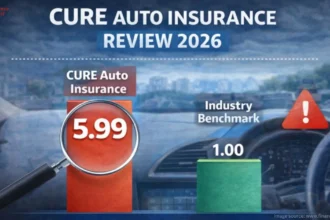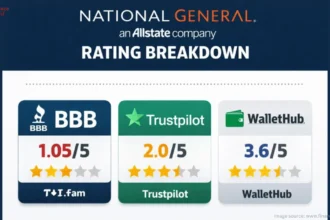Introduction

In the world of real estate investing, flipping houses can be a lucrative endeavor when done correctly. However, not all flipped properties are created equal, and some may be plagued with hidden problems, shoddy workmanship, and potential safety hazards. As a prospective home buyer, it’s crucial to be able to identify the telltale signs of a bad house flip to avoid costly mistakes and ensure you’re making a sound investment.
This comprehensive guide will equip you with the knowledge and tools necessary to spot a badly flipped house, empowering you to make informed decisions throughout the home-buying process. By understanding what to look for and asking the right questions, you can navigate the market with confidence and protect yourself from potential pitfalls.
The Allure of Flipped Houses
Flipped houses often present an appealing proposition for home buyers, offering a fresh, updated aesthetic and the promise of a move-in-ready property. With their sleek finishes, modern appliances, and trendy design elements, these homes can be incredibly tempting. However, it’s essential to look beyond the surface and delve deeper into the quality of the work and the integrity of the property.
While some flippers take pride in their work and prioritize quality craftsmanship, others may cut corners to maximize profits, resulting in subpar renovations that can cause significant issues down the line. By learning to identify the signs of a bad house flip, you can avoid becoming a victim of these unscrupulous practices and ensure that your investment is a sound one.
READ ALSO: The Ultimate Guide to Flipping Houses in the Best Cities for 2024
Red Flags to Watch Out For
1. Permit and Inspection Concerns
One of the first things to investigate when considering a flipped property is whether the necessary permits were obtained and inspections were conducted properly. Failure to secure the required permits can indicate a disregard for building codes and regulations, potentially leading to safety issues and future complications.
To verify the permit status, you can check with your local building department or request copies of the permits from the seller. Additionally, thoroughly review the inspection reports to identify any failed inspections or recurring issues that may have been overlooked or inadequately addressed.
2. Substandard Finishes and Materials
While a newly renovated home is designed to impress, it’s crucial to look beyond the shiny surfaces and evaluate the quality of the materials and workmanship. Poorly executed finishes, such as sloppy paint jobs, uneven tile work, and cheap or ill-fitting trim, can be a clear indicator of a rushed or subpar renovation.
Pay close attention to details like doors, windows, and cabinetry. Doors and windows that stick, jam, or lack proper weather stripping may signal inferior quality or improper installation. Similarly, cabinets that don’t function smoothly or have visible gaps and imperfections can point to cost-cutting measures or a lack of attention to detail.
3. Outdated or Neglected Infrastructure
In some cases, flippers may focus solely on cosmetic updates while neglecting critical systems and infrastructure within the home. This approach can leave you with a property that looks great on the surface but is plagued with underlying issues that can be costly to address.
Be sure to thoroughly inspect the condition of the HVAC system, plumbing, electrical wiring, and structural components. Look for signs of aging or neglect, such as outdated systems, leaks, or evidence of previous damage that may not have been properly addressed.
4. Questionable Layout and Design Choices
While a well-executed flip should prioritize functional and practical design, some flippers may make questionable layout and design choices in an attempt to cut costs or maximize square footage. These decisions can result in awkward or impractical living spaces that fail to meet the needs of potential homeowners.
During your walkthrough, pay close attention to the flow and functionality of the home. Evaluate whether the layout makes sense and if key areas, such as the kitchen and bathrooms, are designed for comfortable and efficient use. Poorly planned or executed design choices can be a red flag indicating a lack of attention to detail or a rushed renovation process.
5. Inadequate Documentation and Disclosure
Reputable flippers should be transparent about the work they’ve done and provide detailed documentation, including receipts, warranties, and a comprehensive list of renovations and materials used. If the seller is unable or unwilling to provide this information, it could be a sign that they are trying to conceal something or that the work was performed without proper oversight or record-keeping.
Additionally, be wary of sellers who fail to disclose known issues or make false claims about the property’s condition. A lack of transparency or attempts to hide information should raise suspicions and prompt further investigation.
READ ALSO: Inspiring House Flipping Success Stories: Valuable Lessons from Real Estate Investing Pros
Conducting Thorough Inspections
No matter how thorough your initial assessment, it’s essential to hire a qualified and experienced home inspector to conduct a comprehensive evaluation of the property. A skilled inspector will be able to identify potential issues that may not be immediately apparent, such as structural defects, electrical hazards, or plumbing problems.
When hiring an inspector, be sure to choose someone with experience in evaluating flipped properties. They will have a keen eye for spotting common flip-related issues and can provide valuable insights into the quality of the renovation work.
Conclusion
Navigating the world of flipped houses can be a daunting task, but by arming yourself with knowledge and exercising due diligence, you can make informed decisions and avoid costly pitfalls. Remember, a well-executed flip can be a dream home, while a poorly executed one can turn into a nightmare.
By following the guidelines outlined in this comprehensive guide and working with experienced professionals, you can confidently evaluate potential flipped properties and identify the telltale signs of a bad house flip. Trust your instincts, ask the right questions, and don’t hesitate to walk away if something doesn’t feel right.
Ultimately, buying a home is a significant investment, and taking the necessary precautions to ensure you’re making a sound decision will pay off in the long run. With patience, diligence, and a keen eye for detail, you can find the perfect flipped property that meets your needs and expectations without compromising on quality or safety.
Frequently Asked Questions (FAQs)
1. Can I flip a house myself without prior experience?
While it’s possible to flip a house without prior experience, it’s generally not recommended, especially for your first few flips. House flipping involves a steep learning curve and carries significant risks. Consider partnering with an experienced investor or taking a course to gain the necessary knowledge and skills before attempting a flip on your own.
2. How can I tell if a flipper used quality materials?
To assess the quality of materials used, look for reputable brand names and research the products’ specifications and ratings. Additionally, request receipts and documentation from the seller to verify the materials used. If they are unable or unwilling to provide this information, it could be a red flag.
3. Should I avoid all flipped houses?
Not necessarily. While there are risks associated with flipped properties, many reputable investors and contractors take pride in their work and deliver high-quality renovations. The key is to conduct thorough due diligence and be able to identify the signs of a well-executed flip versus a poorly executed one.
4. Can I negotiate the price of a flipped house if I find issues?
Absolutely. If you uncover significant issues or deficiencies during your inspections, you may be able to negotiate a lower purchase price or request that the seller address and rectify the problems before closing. Having a knowledgeable real estate agent on your side can be invaluable during these negotiations.
5. What if I’ve already purchased a badly flipped house?
If you’ve already purchased a flipped property and later discover significant issues, you may have legal recourse depending on the circumstances. Consult with a real estate attorney to understand your options and determine if you have grounds for seeking compensation or remediation from the seller or flipper.
In another related article, Top House Flipping Software: Streamlining Your Flipping Business





